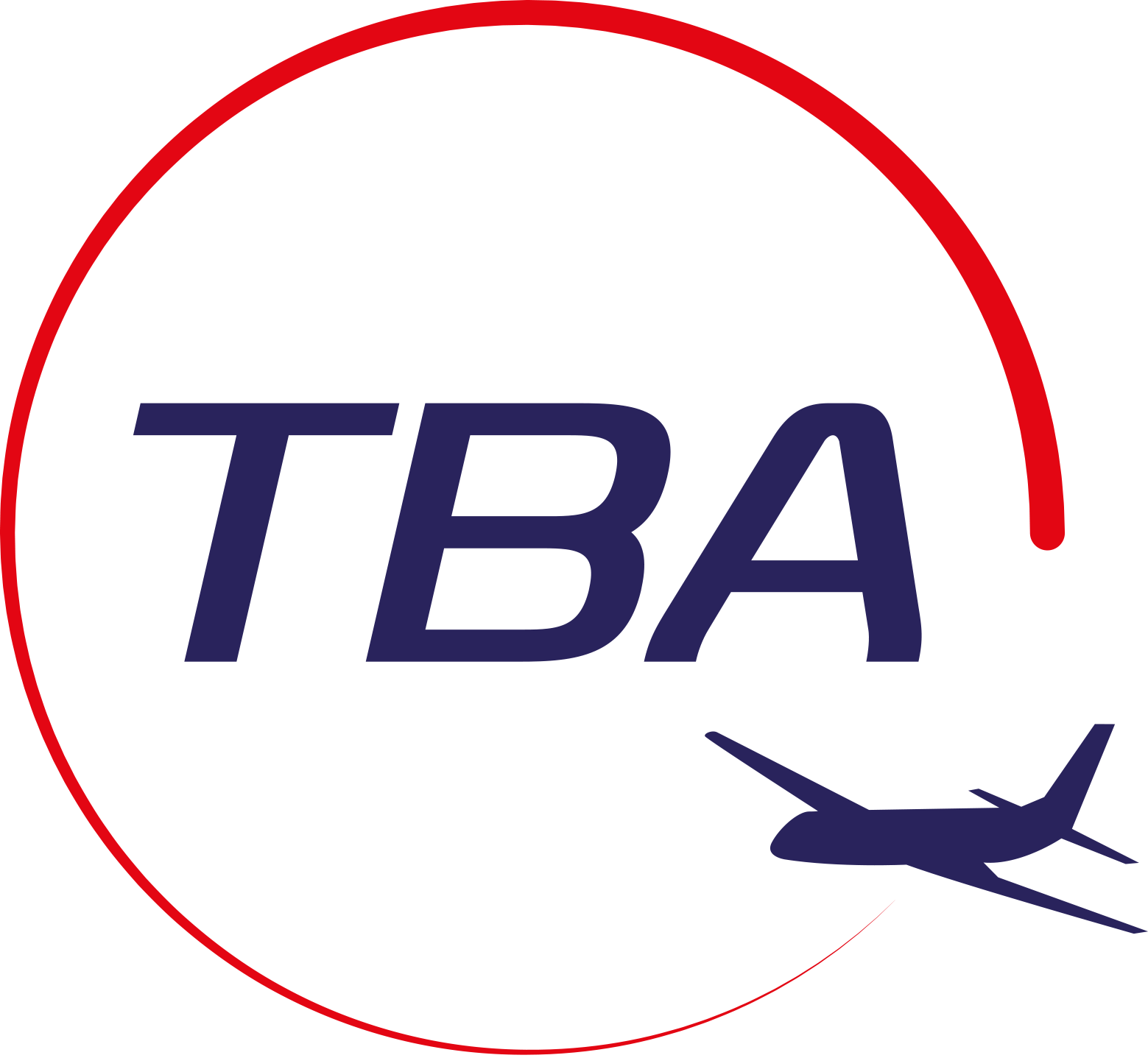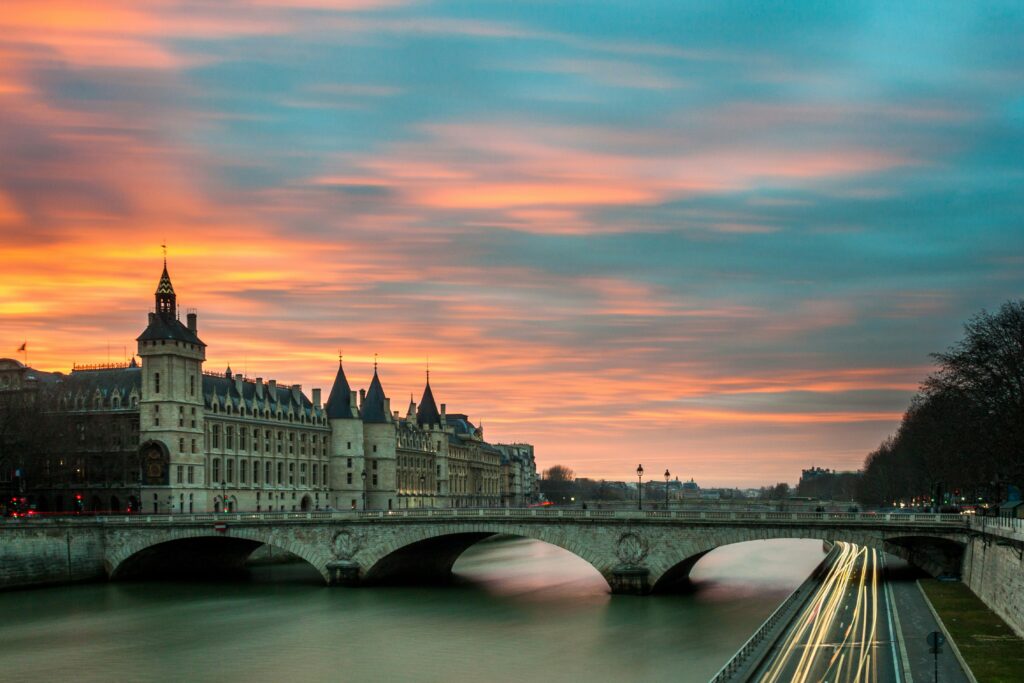
Research and knowledge are the first steps for France Travel Business Assistance. Here is a fact file for France to get you started. Contact us if you are looking to start a business in or expand your market to France. We have consultants ready to help you on the ground in France.
Overcome language and cultural barriers effortlessly – Schedule your complimentary consultation call with Travel Business Assistance today.
Basic Facts
France, officially the French Republic, is a unitary semi-presidential republic in Western Europe, with a number of overseas regions and territories. France is the largest country in Western Europe and the third largest in Europe as a whole, extending from the Mediterranean Sea to the English Channel and the North Sea, and from the Rhine to the Atlantic Ocean.
As one of the oldest countries in the world, France has a long and eventful history. Today it stands as one of the world’s major powers, with strong cultural, economic, military and political influence in Europe and around the world.
As French Civilisation is so rich, it is not surprising that France is the most visited country in the World; We hope you will find this link to French History interesting
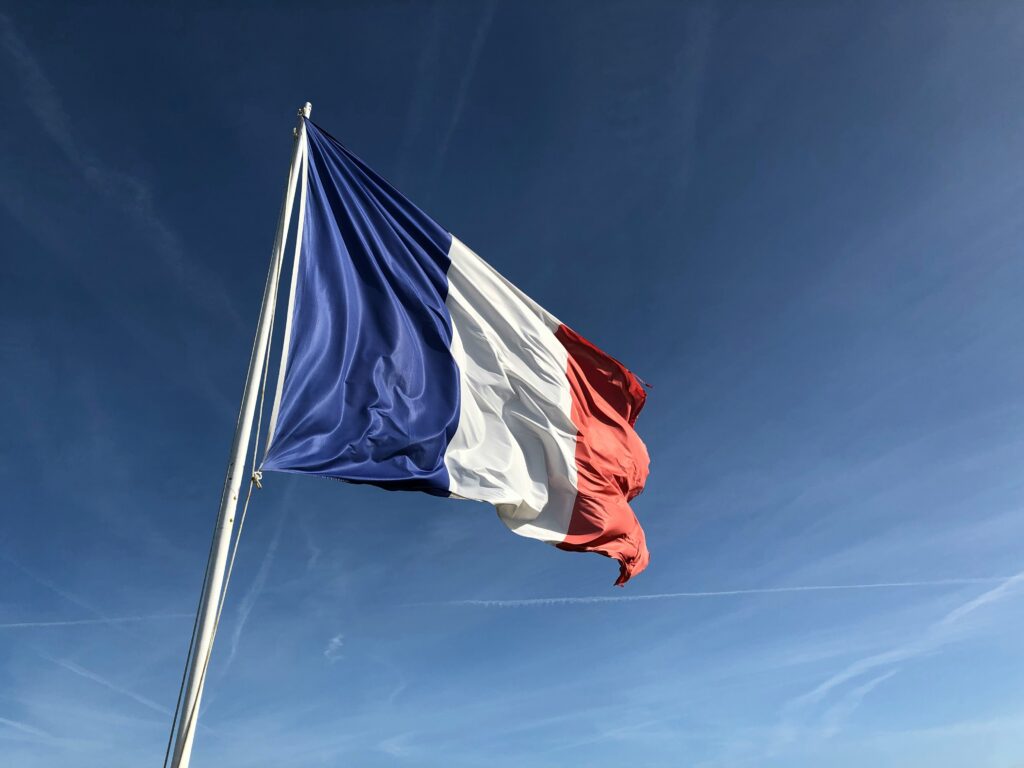
French History
Introduction to French History: A Tapestry of Evolution
Embark on a journey through the annals of time as we unravel the rich and intricate tapestry of French history. From the ancient Gauls forging trade links with the Greeks to the revolutionary fervor of the 18th century, and from the heights of Napoleonic conquests to the challenges of the modern era, France’s story is one of evolution, resilience, and cultural brilliance. This exploration delves into key epochs, highlighting significant events, rulers, and societal shifts that have shaped the nation’s identity. Join us in traversing the vibrant landscapes of ancient Gaul, the opulent courts of Louis XIV, the tumultuous eras of revolution, and the modern complexities of post-war France. In this chronicle, we witness the ebb and flow of power, the clash of ideologies, and the emergence of a nation that has left an indelible mark on the world stage.
Summary of French History
Ancient Gaul: 1500 – 500 B.C. The Gauls, a Celtic people, migrated to the future France around 1500 – 500 B.C., establishing trade links with the Greeks. Gaul encompassed lands from the Pyrenees to the English Channel, and from the Atlantic to the Rhine and Alps, a Roman construct for defense.
Gallic Assimilation and Roman Rule: 5th Century B.C. – 5th Century A.D. Gauls embraced Greco-Roman culture post-Roman conquest, creating impressive structures like the Pont du Gard. Roman rule persisted until the 5th century when Franks and Alemanii assimilated, forming a fusion of Germanic and Gallo-Roman cultures.
Carolingian Dynasty and Charlemagne: 8th – 10th Century The Carolingian Dynasty, led by Charlemagne, emerged in the 8th century, unifying the fractured kingdom. Charlemagne’s reign saw victories, including the Battle of Tours (732) against the Moors.
Capetian Dynasty and Hundred Years War: 10th – 15th Century Hugh Capet established the Capetian Dynasty in 987. The Hundred Years War (1337-1453) with England involved notable events like the Battle of Agincourt and Joan of Arc’s pivotal role in expelling the English.
Renaissance and Reformation: 16th Century The Italian Renaissance influenced France during François I’s rule (1515-47). The Reformation and Wars of Religion (1562-68) unfolded, marked by conflicts between Huguenots and Catholics.
Age of Absolutism and Louis XIV: 17th – 18th Century Louis XIV’s “Sun King” era (1643-1715) showcased opulence and centralization, while the French Revolution erupted in 1789, leading to the First Republic.
Napoleonic Era and Industrialization: Late 18th – 19th Century Napoleon Bonaparte’s rise, Napoleonic Wars, and Congress of Vienna (1814-15) defined this period. France underwent industrialization, and colonial holdings faced changes in Vietnam (1954) and Algeria (1962).
World Wars and Post-War Period: 20th Century France endured World Wars I and II, witnessing German occupation and liberation in 1944. Post-war, Charles de Gaulle led reconstruction, establishing the Fifth Republic in 1958.
Post-WWII to Present: Late 20th Century – 21st Century Economic progress, social changes, and a pivotal role in the European Union characterize recent French history. Noteworthy events include student protests in the 1960s and the gradual end of colonialism.
This timeline encapsulates key events, transitions, and cultural shifts in the rich tapestry of French history.
Doing Business in France
After a long and storied history, one filled with seemingly one major conflict after another, today France is considered one of the world’s most highly developed and well-run nations. It is also the most most-visited country in the world, with nearly 79.5 million foreign visitors annually. France possesses the world’s ninth-largest economy by Gross Domestic Product (GDP) and Europe’s second-largest economy by nominal GDP. In terms of aggregate household wealth, France is the wealthiest nation in Europe and the fourth-largest in the world. The citizens of France enjoy a very high standard of living, a superior educational system and one of the highest life expectancies in the world. Moreover, the World Health Organization (WHO) recently listed France as having the world’s “best overall system of health care.”, although financial pressure on the free of charge health system is increasing.
Setting up and running a business can prove costly. National insurance , income tax and repatriation taxes are among the highest in Europe. The 40 hour week is standard and asking employees to work more can prove costly and difficult.
An employer needs to pay tax of almost 45% of an employee’s salary. French employment law is extremely protective; hiring the wrong candidate can prove costly; employment tribunals favour positive outcomes for employees.
The newly re-elected President Emmanuel Macron has made strides to reboost a proactive start up culture and a more flexible work culture, as the most entrepreneurial French business people were choosing to set up businesses in other countries, notably London.
Younger people enjoy conversing in English language, however, many French people over 50 years old are keen to protect their own language. French society can seem rather parochial.
The French Economy
 France is the fourth largest global economy a World leader in fashion and luxury brands ( especially Cosmetics and fragrances) as well as Wine, Cognac and Champagne
France is the fourth largest global economy a World leader in fashion and luxury brands ( especially Cosmetics and fragrances) as well as Wine, Cognac and Champagne
France is also a leader in nuclear energy , aviation (home of Airbus, Aerospaciale and Dassault) and automotive.
Please see below an economic factsheet
French Culture
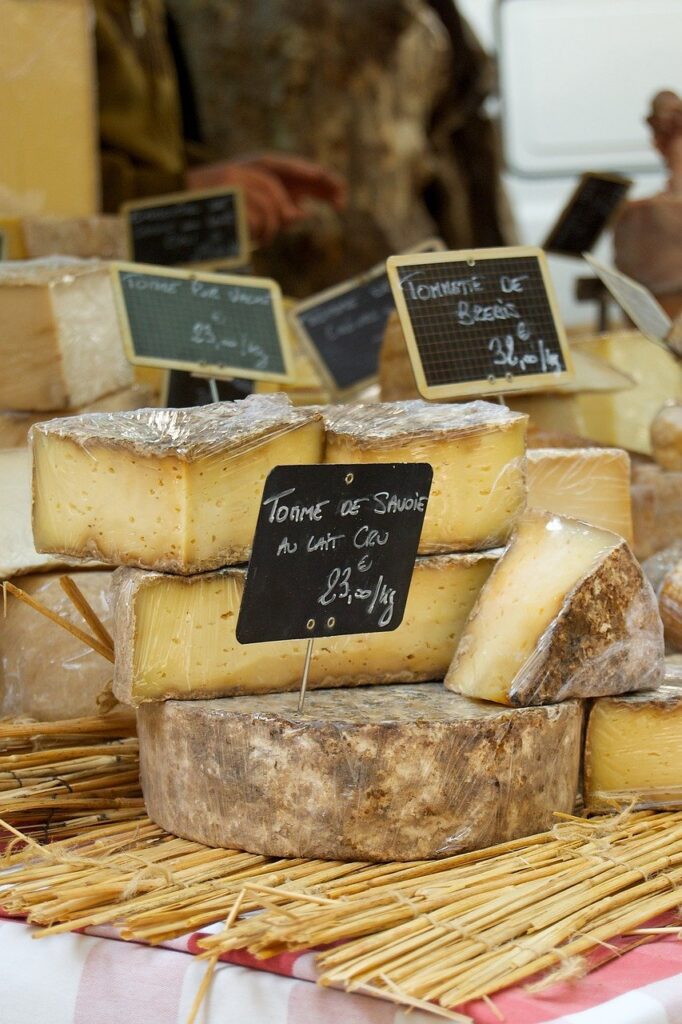 Speaking basic French helps break down social barriers. Culture and language is very dear to the French. Long term friendships are very precious in France and family often come first.
Speaking basic French helps break down social barriers. Culture and language is very dear to the French. Long term friendships are very precious in France and family often come first.
Wellbeing, bank holidays, health and food are key priorities. Art and culture is very important to French people.
Many French will speak about food for hours
The French have more sex than any other country in the World and also sleep the most at an average of 8.89 hours per night.
French waiters appear to be brusque and a little impolite at first, however, can be very warm and welcoming and do not expect large tips just friendly respect.
Things to see and do in Paris
Paris is possibly the most romantic and architecturally beautiful city in the World.
Put aside 3-4 days just to walk everywhere but make sure you stay within the City Centre as the suburbs are unsavory urban sprawls.
From the Eiffel Tower along the Rive Gauche, across Ile de France where the fire-damaged Notre Dame is still magnificent. Try a Bertillon ice cream.
Take a magnificent boat trip up the Seine River on “Bateaux Mouches.
Walk around le Marais, which is the oldest part of Paris with artisanal shops
Visit La Musee d’Orsay, and La musee Rodin, Monet’s expo at Les Tuilleries (next to La Place de la Concorde ) .Pop in Angelina’s for the best hot chocolate ever on rue Rivoli and slip behind into the luxury Place Vendome ..
You can see the modern Arche de La Defense through the Arc de Triomphe by standing at the bottom of the Champs Elysees.
Make sure you spend a whole day at Le Louvre (home of the Mona Lisa and Venus de Milo) and visit amazing churches such as Saint Suplice and experience the renowned café culture.
Two of our favorite traditional French restaurants that have been serving great dinners for decades are Chez Paul near Bastille and Cloche D’Or in Pigalle (the red light district opposite the Moulin Rouge)
Do not forget to take a Bateau Mouche tour along the Seine and visit a classic café such as “Le Deux Magots” on St Germain le Pres on the Rive Gauche.
Day Trips Outside of Paris
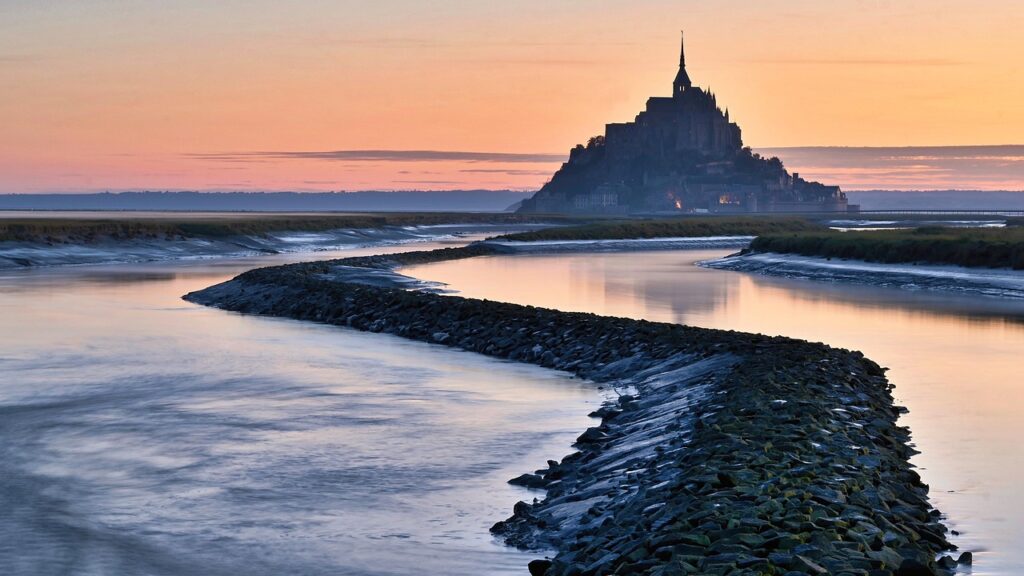 Reims Champagne district and Bordeaux wine district . Both are key picturesque historical cities with deep tradition.
Reims Champagne district and Bordeaux wine district . Both are key picturesque historical cities with deep tradition.
Honfleur port, the Bayeux Tapestry and the Normandy Beaches (WW2 D-Day landings)
The Loire Valley Castles : do not miss Chambord
Monet Gardens at Giverney
Chateau de Chantilly (1 hour North of Paris)
Bordeaux – Wine Tours and UNESCO Heritage site
Annual Events in France
January – Fashion sales
February 14 – Valentine’s Day
February – Menton Lemon Festival
May – Roland Garros – French Tennis Open
May – Cannes Film Festival
21st June – Fete de la Musique
14th July – Bastille Day Military parade on the Champs Elysees
July – Tour de France cycling
July / August – Festivals of Avignon and Orange – See the Provence Lavender fields at same time
Sept – March : Football season – Visit PSG (Paris Saint Germain)
FranceTravel Business Assistance
Are you planning to move your business to France or open up France as a new market? Perhaps there is a conference in France you need to attend and you need some help. We are here for your France Travel Business Assistance.
